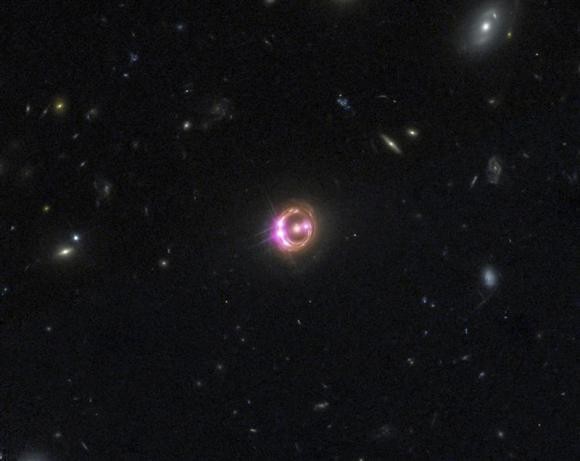NASA managed to spot ephemeral quasar ghosts using the Hubble Space Telescope. Eight green looped objects were orbiting their host galaxies which flickered and then faded.
Bill Keel from the University of Alabama started the Hubble survey. He said that the findings provide more information about the complex behavior of galaxies that have energetic cores.
The orbiting helical wisps found outside their host galaxies are speculated to be illuminated by a supermassive black hole's strong UV radiation at its core.
Quasars are galaxy cores that are considered to be the most active. Infalling materials are extremely heated to the point that it illuminates and shines across the deep space. The beam is then generated by the superheated gas that encircles the black hole, according to Phys.org.
The glowing filaments are telling us that the quasars were once emitting more energy, or they are changing very rapidly, which they were not supposed to do," said Keel.
One logical explanation is that two black holes from space are giving the quasars the power to light up even more, similar to what a dimmer does on light.
Keel said that a process called photoionization caused the supposedly-invisible filaments in space to glow brightly.
It is believed that the green filaments were pulled apart by space's gravitational forces that was caused by two galaxies merging, according to Daily Mail.
Simply put, Keel said that the quasar ghosts are being seen now 1.5 billion years after one smaller galaxy from space fell into a much bigger galaxy.
Scientists are also expecting that the Milky Way galaxy, where Earth resides, will be merging with the Andromeda galaxy in around 4 billion years.



























